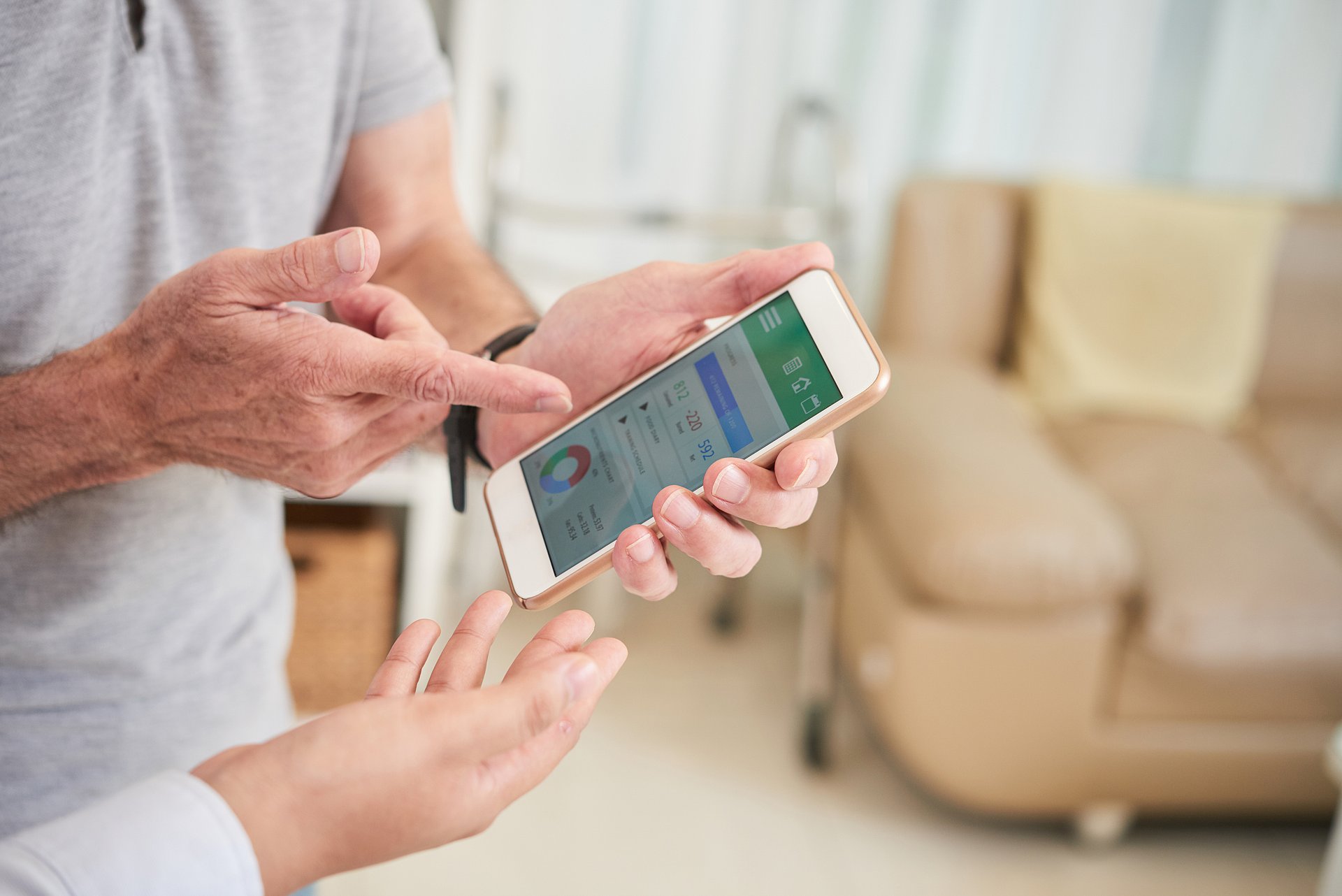Extensive study on telemedicine for diabetes and coronary heart disease
"The hype around medical apps needs to be put into perspective"

Patients with type 2 diabetes and coronary heart disease are at a particularly high risk of heart attacks, among other complications. Lifestyle changes, increased exercise, and dietary adjustments can significantly reduce these risks. A study conducted at eleven sites across Germany aimed to determine whether telemedicine and training apps could help with these lifestyle changes. The results have now been published in the renowned journal "Nature Medicine".
For the study, 502 patients (84% of whom were men) were divided into two groups. The control group received standard medical care and was given standardized dietary recommendations and information material on physical activity. The second group instead received an individualized, app-supported home-based exercise program as well as personalized nutrition tips. During the first phase of the study, participants received regular phone calls providing feedback on their progress and other information about the program. In a second phase, they were asked to follow the exercises independently.
Low participant engagement
"After the first six months, we saw an improvement of -0.13 percentage points in long-term blood glucose in the intervention group," says first author Dr. Stephan Müller. Although this is a small improvement, it is statistically significant. The training had no effect on other risk factors such as blood pressure or cholesterol levels. If only participants who followed the training and dietary guidelines are considered, the improvement is almost -0.3 percentage points, which is also relevant from a clinical perspective. There were other statistically significant effects on body weight, waist circumference and triglycerides, a type of fat found in the blood. After the end of the second phase, there were no more benefits compared to the control group.
According to the researchers, participant cooperation, or adherence, was a crucial factor in the study's results. In the first six months, only 41 percent met the adherence criteria for the exercise regimen, meaning they participated 'sufficiently'. Among those who did not meet the adherence criteria, nearly half failed to achieve the prescribed exercise duration per week even once. What's more, around a quarter of all participants did not even start the training. Technology barriers may have been partly responsible for this. More than two thirds of the participants – average age 68 – stated that they generally found using apps and devices "rather difficult".
"High effort, low return"
According to senior author Martin Halle, Professor of Preventive Sports Medicine and Sports Cardiology at TUM, large studies like this are important to measure the actual success of app-based approaches. Germany is the first country in Europe to have medical digital services covered by health insurance. According to Halle, the significant shortage of doctors in Germany is a major factor driving high hopes for health promotion through apps and similar services.
"The individualized support we tested here was very time-consuming," says Martin Halle. "Our evaluation indicates that this considerable effort yielded a low return." This is certainly partly because those affected are at an age where many find it difficult to get to grips with new technologies, says Halle. "However, older people are the group that is particularly affected by these and similar illnesses."
"Our results clearly indicate that a holistic approach is necessary." The current hype surrounding medical apps needs to be put into perspective," says Halle. "Personal care remains an indispensable part of patient care. A purely app-based approach is not a solution, at least not for the German healthcare system."
Mueller, S., Dinges, S.M.T., Gass, F. et al. Telemedicine-supported lifestyle intervention for glycemic control in patients with CHD and T2DM: multicenter, randomized controlled trial. Nat Med (2025). doi.org/10.1038/s41591-025-03498-w
- The study "Lifestyle intervention in chronic ischemic heart disease and diabetes (LeIKD)" was funded by the Federal Joint Committee (Innovationsfonds des Gemeinsamen Bundesausschusses).
- Prof. Martin Halle is a member of the TUM School of Medicine and Health.
- Article on the study on the Department of Sport and Health Science website.
Technical University of Munich
Corporate Communications Center
- P. Hellmich / B. Daneyko
- paul.hellmich@tum.de
- presse@tum.de
- Teamwebsite
Contacts to this article:
Prof. Dr. Martin Halle
Technical University of Munich
Chair of Preventive Sports Medicine and Sports Cardiology
Tel.: 089 4140 6774 (Klinikum rechts der Isar)
Tel.: 089 289 24441 (Uptown Campus)
martin.halle@mri.tum.de


